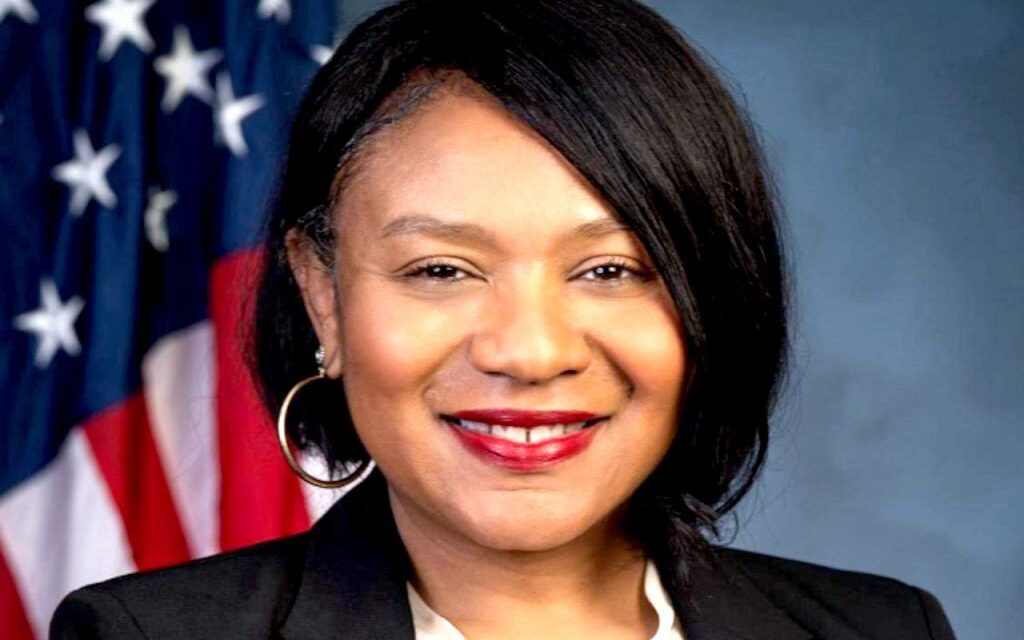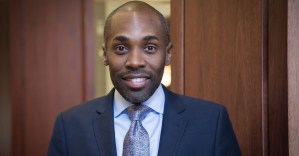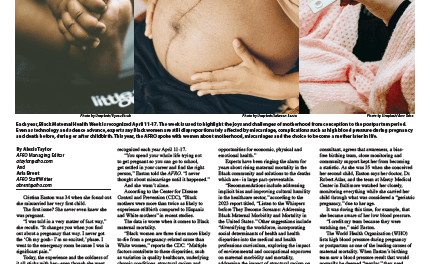NEWS RELEASE
Each time Adrian Peterson Fields visits her hometown of Birmingham, there’s one agenda item that’s non-negotiable.
She must visit east Birmingham and the neighborhoods of Oak Ridge Park and the Gate City community.
“I do it to connect with who I am. I am still just ‘Shae,’” Fields said, referencing her childhood nickname. “I also spend some time sharing, for those who are open, ways to advance so we can get beyond what we see. There is a path for you, your children and your grandchildren.”
The 47-year-old Birmingham native was recently named the southeast regional director for the U.S. Department of Housing and Urban Development’s Office of Community Planning and Development.
The HUD leadership position is the first of its kind in more than 30 years, reviving the former federal role. Fields is based at the Region 4 headquarters in Atlanta, overseeing federal initiatives in eight southern states, Puerto Rico, and the Virgin Islands.
Fields grew up around public housing in east Birmingham. And she ended up spending most of her career focusing on housing and housing policy — from her years at the HUD office in Birmingham, to serving as deputy director of the Housing Authority of the Birmingham District and to community planning and development at HUD’s Atlanta office. She was appointed May 5.
“I’ve always had my hand in affordable housing of some sort,” she said in a phone interview during an airport layover as she traveled from state to state. “I fell into it. It wasn’t a career choice, it chose me. Seeing how we grew up and having community resources and how our schools were impacted by federal programs gave me a different lens.”
Fields spent her early childhood in the Marks Village public housing community where her grandmother, Mary E. Johnson, lived for about 10 years.
Fields can still point out her grandmother’s old apartment and recognizes the few elderly women from her childhood who still live in the area.
Just blocks away, her great-grandmother, Laura Connor, was one the first Black homeowners in Birmingham’s eastern area in Oak Ridge Park. Between the two houses, Fields said she found discipline and encouragement to think far beyond the boundaries of the neighborhood.
“She always believed that I would be different, and my life would be a testimony for someone else,” Fields said of her great-grandmother. “She always saw something in me, and I want to give that back to others. I had a lot of mentors who invested in me, and I want to be that same person to other people.”
While her HUD position is new, Fields said her personal beginnings in Birmingham gives her an intimate understanding of the challenges facing the hundreds of thousands of people her office is designed to serve.
“I’m from Birmingham and my core is also in Region 4. I understand the challenges we face because I was that person,” she said. “If I can make a difference in someone’s life like somebody did for me, then I’ve accomplished everything I need to accomplish.”
Her territory includes urban and rural, spanning Appalachia to the Delta and through the Caribbean.
“We get lost in the challenges that we don’t tend to elevate the amazing work that people are doing in those localities,” she said. “Every state has a unique quality and a unique strength which are important to elevate.”
Fields called former longtime HUD executive Pat Hoban-Moore a professional mentor. Hoban-Moore said she has an equal amount of respect for her protégé, saying Fields “personifies the best in public service.”
Hoban-Moore said Fields is anchored in her personal history, competent in her official mission, and committed to enhancing the lives of the people her office is charged to serve.
“I always love that she has a sense of humor and she’s not all puffed up and full of herself,” said Hoban-Moore, now retired from HUD and current executive director of the Community Development Corporation at Miles College. “She knows who she is, and she never gets too puffed up that she forgets why she is there.”
Hoban-Moore said Fields has both the head and the heart for her roles.
“She has the ability to apply it toward the best possible outcome,” Hoban-Moore said. “For people who have that gift and use it for that good, that’s the best that you could possibly have. I am thrilled that there are people like her.”
Fields said the needs of her region are as diverse and the people she serves. That includes infrastructure problems created by climate change, the need for stable utilities, long-term and transitional housing.
“We have more needs than we have beds and units, and we have to rethink the way we look at affordable housing,” Fields said. “We must think about adaptive reuse of schools and hospitals and how we can turn those into housing. The government cannot legislate us out of this issue. It is going to take lots of hands and innovation to get us there.”











